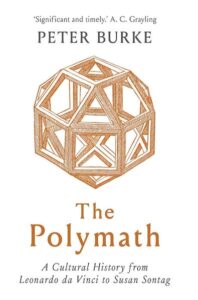 The seventeenth century Jesuit priest Athanasius Kircher has been called “the last man who knew everything.” From his studies in geology and biology, to his investigations of the language and religious practices of the ancient Egyptians, to his many experiments with mechanical instruments, he was truly an example of those remarkable people we call polymaths. Not surprisingly, given the broad expanse of its areas of potential study, many other prominent figures in the histories of natural philosophy and natural history are similarly worthy of the designation: Hans Sloane, Alexander von Humboldt, Charles Darwin, and John Herschel, to name only a few.
The seventeenth century Jesuit priest Athanasius Kircher has been called “the last man who knew everything.” From his studies in geology and biology, to his investigations of the language and religious practices of the ancient Egyptians, to his many experiments with mechanical instruments, he was truly an example of those remarkable people we call polymaths. Not surprisingly, given the broad expanse of its areas of potential study, many other prominent figures in the histories of natural philosophy and natural history are similarly worthy of the designation: Hans Sloane, Alexander von Humboldt, Charles Darwin, and John Herschel, to name only a few.
In his new book The Polymath; A Cultural History from Leonardo da Vinci to Susan Sontag from Yale University Press, Prof. Peter Burke, beginning with the European Renaissance, examines the fascinating history of the polymath phenomenon itself, as well as the lives and works of a number of noteworthy examples of such people.
For those interested in the history of natural philosophy, history of natural history, or the history of science (as appropriate to their respective periods), as well as those whose curiosity ranges more widely across intellectual history in general, this is a book most certainly worthy of further investigation.
If you enjoyed reading this, please consider signing up for The Well-read Naturalist's newsletter. You'll receive a helpful list of recently published reviews, short essays, and notes about books in your e-mail inbox once each fortnight.
